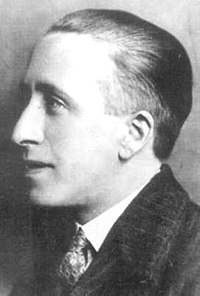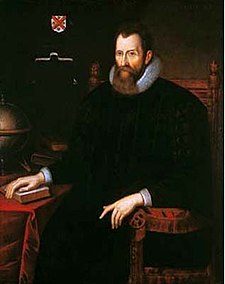| Main Page | Selected articles 1 | Selected articles 2 | Selected biographies | Selected quotes | Selected pictures | Featured Content | Categories & Topics |
Introduction
 |

|
|

| ||
Scotland (Scots: Scotland; Scottish Gaelic: Alba) is a country that is part of the United Kingdom. It contains nearly one-third of the United Kingdom's land area, consisting of the northern part of the island of Great Britain and more than 790 adjacent islands, principally in the archipelagos of the Hebrides and the Northern Isles. To the south-east, Scotland has its only land border, which is 96 miles (154 km) long and shared with England; the country is surrounded by the Atlantic Ocean to the north and west, the North Sea to the north-east and east, and the Irish Sea to the south. The population in 2022 was 5,439,842. Edinburgh is the capital and Glasgow is the largest of the cities of Scotland.
The Kingdom of Scotland emerged as an independent sovereign state in the 9th century. In 1603, James VI succeeded to the thrones of England and Ireland, forming a personal union of the three kingdoms. On 1 May 1707, Scotland and England combined to create the new Kingdom of Great Britain, with the Parliament of Scotland subsumed into the Parliament of Great Britain. In 1999 a Scottish Parliament was re-established, and has devolved authority over many areas of domestic policy. The country has its own distinct legal system, education system and religious history, which have all contributed to the continuation of Scottish culture and national identity. Scottish English and Scots are the most widely spoken languages in the country, existing on a dialect continuum with each other. Scottish Gaelic speakers can be found all over Scotland, however the language is largely spoken natively by communities within the Hebrides. The number of Gaelic speakers numbers less than 2% of the total population, though state-sponsored revitalisation attempts have led to a growing community of second language speakers.
The mainland of Scotland is broadly divided into three regions: the Highlands, a mountainous region in the north and north-west; the Lowlands, a flatter plain across the centre of the country; and the Southern Uplands, a hilly region along the southern border. The Highlands are the most mountainous region of the British Isles and contain its highest peak, Ben Nevis, at 4,413 feet (1,345 m). The region also contains many lakes, called lochs; the term is also applied to the many saltwater inlets along the country's deeply indented western coastline. The geography of the many islands is varied. Some, such as Mull and Skye, are noted for their mountainous terrain, while the likes of Tiree and Coll are much flatter. (Full article...)
Selected article

The Scottish Renaissance (Scottish Gaelic: Ath-bheòthachadh na h-Alba; Scots: Scots Renaissance) was a mainly literary movement of the early to mid-20th century that can be seen as the Scottish version of modernism. It is sometimes referred to as the Scottish literary renaissance, although its influence went beyond literature into music, visual arts, and politics (among other fields). The writers and artists of the Scottish Renaissance displayed a profound interest in both modern philosophy and technology, as well as incorporating folk influences, and a strong concern for the fate of Scotland's declining languages.
It has been seen as a parallel to other movements elsewhere, including the Irish Literary Revival, the Harlem Renaissance (in the USA), the Bengal Renaissance (in Kolkata, India) and the Jindyworobak Movement (in Australia), which emphasised indigenous folk traditions. (Full article...) Read more ...
Selected quotes
" ... Men are immortal till their work is done ... "
" ... America would have been a poor show had it not been for the Scots ... "
In the news

- 24 July 2024 –
- Researchers from the Scottish Association for Marine Science report evidence of dark oxygen being produced from metals on the seafloor. It was previously assumed that almost all the free oxygen (O
2) on Earth was created through photosynthesis, which requires sunlight. (NPR) - 24 June 2024 –
- The Royal Zoological Society of Scotland reports that Scottish wildcat kittens have been born in the Cairngorms National Park, in a "major milestone" for the conservation of the critically endangered population. (The Guardian)
Selected biography

John Napier of Merchiston (/ˈneɪpiər/; 1 February 1550 – 4 April 1617), nicknamed Marvellous Merchiston, was a Scottish landowner known as a mathematician, physicist, and astronomer. He was the 8th Laird of Merchiston. His Latinized name was Ioannes Neper.
John Napier is best known as the discoverer of logarithms. He also invented the so-called "Napier's bones" and made common the use of the decimal point in arithmetic and mathematics.
Napier's birthplace, Merchiston Tower in Edinburgh, is now part of the facilities of Edinburgh Napier University. There is a memorial to him at St Cuthbert's at the west side of Edinburgh.
Selected picture
Dunfermline Abbey is a large Benedictine abbey in Dunfermline, Fife. It was administered by the Abbot of Dunfermline. The abbey was founded in 1128 by King David I, but the monastic establishment was based on an earlier foundation dating back to the reign of King Máel Coluim mac Donnchada (i.e. "Malcolm III" or "Malcolm Canmore", r. 1058-93).
Photo credit: Andy Stephenson
Did You Know...

- ... that background research for Dujanah included interviews with Muslim apostates and a Scottish veteran of Afghanistan?
- ... that George Parks was president of the Royal College of Surgeons in Ireland and his son Rowan Parks became president of the Royal College of Surgeons of Edinburgh?
- ... that the 1929 Scottish Prayer Book is the Scottish Episcopal Church's current version of the Book of Common Prayer?
- ... that Mary Earle was born near Ben Nevis, and although she became a professor of food technology in New Zealand, she never forgot her Scottish roots?
- ... that mountaineer and geographer Caleb George Cash was instrumental in preserving essential documents pertaining to the first known atlas of Scotland?
- ... that despite his defeat at the battle of Pitgaveny, both of Duncan's sons would later rule Scotland?
- ... that the New York Yankees were first named after a Scottish regiment?
- ... that in 1999 two necklaces were repatriated to the Cook Islands National Museum from a museum in Angus, Scotland?
Get involved
For editor resources and to collaborate with other editors on improving Wikipedia's Scotland-related articles, see WikiProject Scotland.
To get involved in helping to improve Wikipedia's Scotland related content, please consider doing some of the following tasks or joining one or more of the associated Wikiprojects:
- Visit the Scottish Wikipedians' notice board and help to write new Scotland-related articles, and expand and improve existing ones.
- Visit Wikipedia:WikiProject Scotland/Assessment, and help out by assessing unrated Scottish articles.
- Add the Project Banner to Scottish articles around Wikipedia.
- Participate in WikiProject Scotland's Peer Review, including responding to PR requests and nominating Scottish articles.
- Help nominate and select new content for the Scotland portal.
Do you have a question about The Scotland Portal that you can't find the answer to?
Post a question on the Talk Page or consider asking it at the Wikipedia reference desk.
Related portals
Other language versions
Associated Wikimedia
The following Wikimedia Foundation sister projects provide more on this subject:
-
 Commons
Commons
Free media repository -
 Wikibooks
Wikibooks
Free textbooks and manuals -
 Wikidata
Wikidata
Free knowledge base -
 Wikinews
Wikinews
Free-content news -
 Wikiquote
Wikiquote
Collection of quotations -
 Wikisource
Wikisource
Free-content library -
 Wikispecies
Wikispecies
Directory of species -
 Wikiversity
Wikiversity
Free learning tools -
 Wikivoyage
Wikivoyage
Free travel guide -
 Wiktionary
Wiktionary
Dictionary and thesaurus
-

-

-

-

-
Random portal
Purge server cache
























